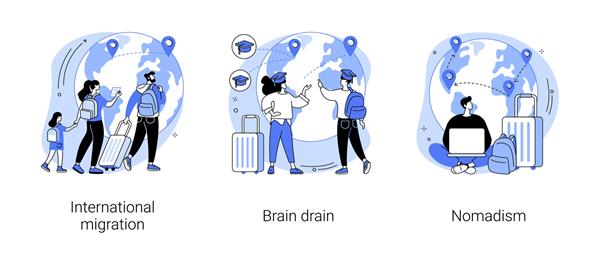PDF chapter test TRY NOW
Migration has an effect on both the areas of origin and destination of migrants.
The following are the major consequences of migration.
The following are the major consequences of migration.
a) Demographic consequences:
For instance, similar to an increase or decrease in population, After marriage, migration of females leads to a decline in sex ratio in the source regions and an increase in the sex ratio in the destination region as the male workers migrate in search of jobs, the working age population of the source regions decreases, which increases the dependency ratio.
b) Social consequences:
The migration of people from different regions with different cultures towards an urban area paves the way for intermixing diverse cultures, giving rise to a plural society. This helps the people to come out of narrow mindedness and to become broad-minded and generous people.
The negative social effects of migration consist of a change in family composition, family separations and the abandonment of the elderly people, child outcomes in terms of labour, health and education.
c) Economic consequences:
Scarcity of resources sets in when more people migrate and overpopulate a particular region, i.e. imbalance in resource-population ratio. In some cases, over population and under population, may be balanced, leading to the optimum population due to this migration.
The occupational structure of the population is also affected by migration, which in turn affect the economy of the regions. Brain drain, which is a consequence of migration, may lead to further backwardness in the source region. This is because skilled people from economically backward countries move to developed countries in search of better opportunities. This effect is called as "backwash effect".

d) Environmental consequences:
Pressure on natural resources and physical infrastructure increases due to large scale movement of people from rural to urban areas and causing overcrowding in cities.
This ultimately leads to the unplanned growth of settlements in the city outskirts and the formation of slums.
This ultimately leads to the unplanned growth of settlements in the city outskirts and the formation of slums.
Apart from this, the cities will also face the depletion of groundwater, traffic congestion, inadequate drainage systems, difficulty in handling solid wastes etc. The common environmental problems that prevail in urban areas due to pressure on natural resources are:
- Scarcity of drinking water
- Pollution of air, water and soil
- Traffic congestions
- Lack of space for housing
- Poor drainage
